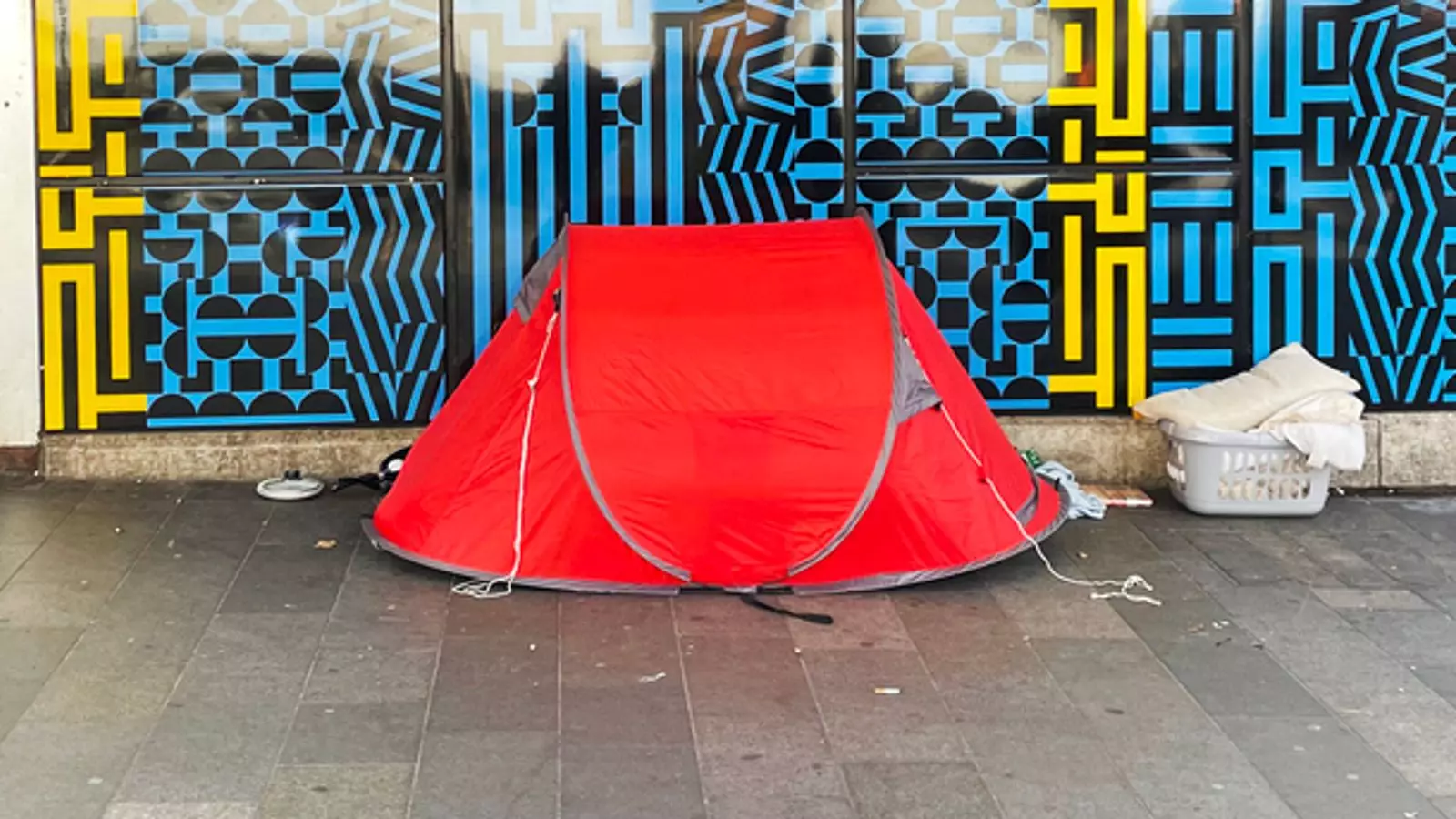The number of refugees sleeping rough on the streets of London has skyrocketed by a staggering 800% in just two months, highlighting a distressing exacerbation of a deeply rooted issue. London, being the home to approximately a quarter of the country’s asylum seekers, has become a hotspot for this crisis. Many refugees have been provided temporary accommodation in hotels, but a recent change in Home Office policy has left them vulnerable and displaced. Previously, individuals granted refugee status were given a standard 28-day period to transition from state-provided accommodation to permanent homes. However, the Home Office began counting down from the day refugees received their asylum decision letter, which often leads to a significantly shorter notice period. As a result, an alarming number of refugees, sometimes as few as seven days, are being forced into homelessness.
The consequences of this policy change are starkly evident in the statistics. In July, there were only 11 individuals sleeping rough in London after leaving asylum accommodation. However, by September, this number had skyrocketed to 102, an alarming increase of 827%. These numbers are merely a glimpse into the magnitude of the problem, as there are also numerous hidden homeless individuals who resort to alternative forms of accommodation, such as couchsurfing. Tom Copley, London’s deputy mayor for housing, rightfully emphasizes that the reported figures are only the tip of the iceberg, further amplifying the urgency for immediate action.
The Tragic Impact on Refugees’ Lives
The devastating consequences of this policy change are clearly illustrated through personal accounts. Adam, whose identity remains undisclosed, fled persecution in Yemen and sought refuge in the UK. Despite waiting for his asylum claim to be processed for two arduous years, he was elated to finally receive refugee status. However, his joy soon turned into terror as he found himself without a roof over his head shortly after. Adam’s dream of starting a new life in the UK shattered abruptly, leaving him desperate for a warm and dry place to sleep. Fortunately, he received assistance from the charity Refugees at Home, whose efforts prevented him from falling deeper into a dire state of homelessness.
The Dire Need for Policy Change
Charities like Refugees at Home are struggling to cope with the overwhelming demand for assistance due to the inadequacy of the current policies. This year, they experienced a three-fold increase in the number of refugees seeking their support compared to the previous year. In October alone, they received 204 referrals, highlighting the growing urgency of this crisis. The Red Cross, Refugees at Home, and other organizations have called for an extension of the notice period to 56 days, allowing refugees sufficient time to secure alternative housing arrangements. By ignoring this urgent need for policy reform, the government is actively endangering the lives and well-being of individuals who have already endured immense hardships.
A Plea for Change to Mitigate the Crisis
London Mayor Sadiq Khan has joined forces with various charitable organizations to advocate for the extension of the notice period to 56 days. By allowing refugees additional time to find suitable housing, the risk of homelessness could be substantially reduced. This coalition of charities, backed by the mayor, believes that proactive changes in policy could prevent up to 50,000 refugees from falling into homelessness across the UK. However, the government’s response to this crisis remains unsatisfactory. In a statement, the Home Office reiterated the existing 28-day notice period but failed to acknowledge the urgency and dire consequences of their policy.
The growing number of refugees sleeping rough on the streets of London is a stark reminder of our collective failure to protect the most vulnerable members of our society. Urgent action is needed to address this crisis and ensure that the rights and well-being of refugees are safeguarded. The government must display compassion and empathy by reassessing their policies and implementing changes that provide adequate support and notice periods for refugees transitioning to new homes. Additionally, increased collaboration with charities and stakeholders in this arena is critical to prevent further exacerbation of this already severe issue. By uniting and prioritizing the welfare of refugees, we can strive towards a society that upholds the principles of compassion, equality, and justice for all.


Leave a Reply